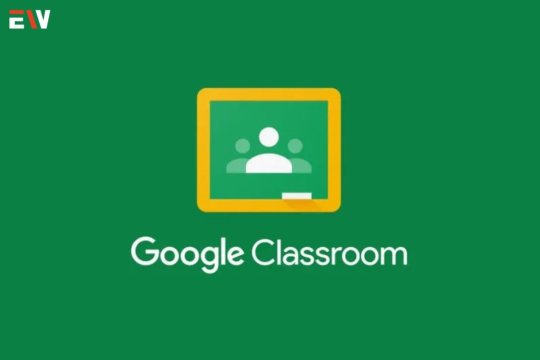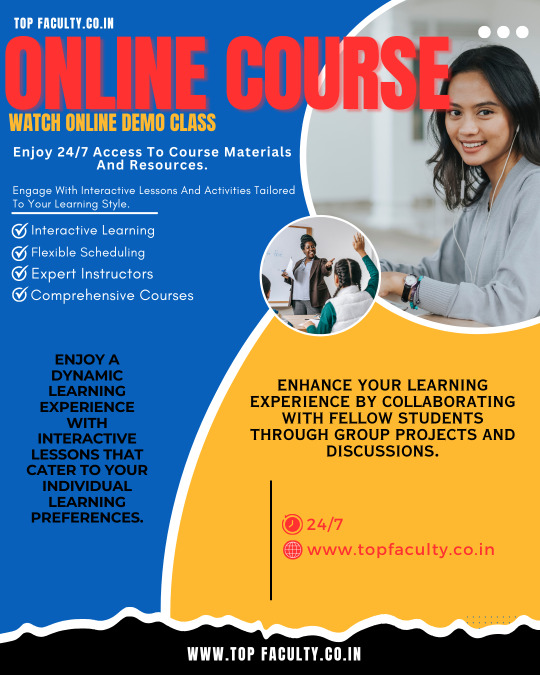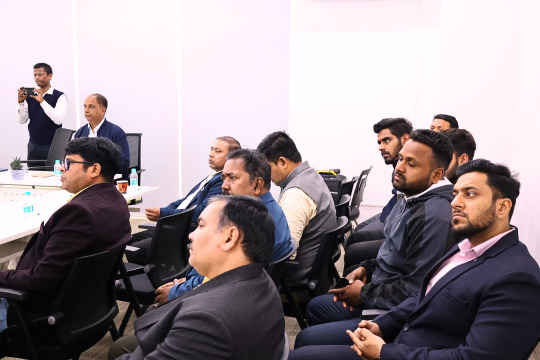#CollaborativeLearning
Link
Class Groups: Are They the Future of Collaborative Learning?
The traditional classroom setting, with rows of students facing a teacher at the front, has dominated education for centuries. However, the rise of technology and the evolving needs of the 21st century workforce are pushing the boundaries of learning. Enter Class Groups, a concept that reimagines the classroom by leveraging the power of online learning solutions and fostering collaborative learning. But are Class Groups truly the future of education? Let’s delve into the potential benefits and challenges associated with this innovative approach to learning.
#students#traditionalclassroom#education#21stcentury#classgroups#classgroup#onlinelearningsolutions#collaborativelearning#modernlearning#onlinelearningplatforms#explainlearning#e-learning
2 notes
·
View notes
Text

Interactive Education: Exploring Connetix Tiles' Role in STEAM Learning
Explore how Connetix Tiles revolutionize STEAM learning, fostering creativity and problem-solving skills in a hands-on and interactive way.
0 notes
Text
Empowering Education: Exploring the Best Free Learning Management Systems

The demand for efficient and accessible learning management systems (LMS) is on the rise. Whether for educational institutions, businesses, or individual educators, having a reliable LMS is crucial for organizing and delivering learning content. This article explores the realm of free learning management systems, highlighting their features, benefits, and how they can empower organizations and educators without breaking the budget.
Understanding Learning Management Systems (LMS)
A Learning Management System (LMS) is a software application designed to facilitate the administration, delivery, and tracking of educational content. LMS platforms provide a centralized hub for managing courses, tracking learner progress, and fostering interactive online learning experiences.
Benefits of Free Learning Management Systems
1. Cost-Efficiency

The primary advantage of free LMS platforms is their cost-effectiveness. They eliminate the need for substantial upfront investments, making them an ideal choice for small businesses, educational institutions with limited budgets, and individual educators.
2. Accessibility
Free LMS platforms make e-learning accessible to a wider audience. Individuals and organizations with constrained financial resources can leverage these platforms to create and deliver educational content without compromising on quality.
3. User-friendly interfaces
Many free LMS options feature intuitive and user-friendly interfaces. This ensures that educators, even those with limited technical expertise, can easily navigate the platform, create content, and manage learners.
4. Scalability
Free LMS platforms often offer scalable solutions, allowing users to start with basic features and gradually expand as their needs grow. This scalability makes them suitable for both small-scale initiatives and larger educational projects.
5. Community Support
Free LMS platforms often have active user communities. Users can benefit from shared experiences, best practices, and community-driven support forums, creating a collaborative learning environment.
Top Free Learning Management Systems
1. Moodle
Moodle is an open-source learning platform widely used for both academic and corporate learning. It offers a range of features, including customizable course formats, activity modules, and extensive administrative controls. Moodle’s open-source nature allows for community contributions and continuous improvement.
2. Canvas by Instructure
Canvas is a user-friendly LMS with a clean interface and robust features. While there is a paid version (Canvas LMS), the company offers Canvas Free for teachers. It includes features like course creation, discussion boards, and grading tools.
3. Google Classroom

Google Classroom is a cloud-based platform that seamlessly integrates with Google Workspace (formerly G Suite). It provides a simple and collaborative environment for teachers to create, distribute, and grade assignments. Google Classroom is particularly suitable for K-12 and higher education.
4. Edmodo
Edmodo is a social learning platform designed for K-12 education. It allows teachers to create a virtual classroom, share resources, and engage with students in a secure online environment. Edmodo offers features such as quizzes, assignments, and collaborative discussions.
5. Sakai
Sakai is an open-source LMS developed by a global community of academic institutions. It provides a robust set of tools for course management, collaboration, and assessment. Sakai’s flexibility and extensibility make it suitable for diverse educational settings.
6. Claroline Connect
Claroline Connect is an open-source LMS that emphasizes collaborative learning and social interaction. It offers features such as forums, wikis, and collaborative tools. Claroline Connect is designed to enhance the learner’s experience through interactive and engaging content.
7. Chamilo
Chamilo is an open-source LMS that focuses on ease of use and adaptability. It provides features for course creation, communication, and assessment. Chamilo is suitable for various learning environments, from traditional classrooms to online courses.
Tips for Choosing the Right Free LMS
1. Define Your Requirements
Clearly outline your specific needs and requirements before choosing an LMS. Consider factors such as the number of users, types of content, and desired features to ensure the selected platform aligns with your goals.
2. User-Friendly Interface
Opt for an LMS with an intuitive and user-friendly interface. A platform that is easy to navigate and use will contribute to a positive learning experience for both educators and learners.
3. Scalability
Choose an LMS that can grow with your needs. Ensure the platform allows for scalability, enabling you to add features or accommodate a growing user base as your educational initiatives expand.
4. Community Support

Explore the level of community support offered by the LMS. An active user community can provide valuable insights, troubleshooting assistance, and a sense of collaboration.
5. Integration Capabilities
Consider the integration capabilities of the LMS with other tools and systems. Seamless integration with tools such as video conferencing, content creation software, or analytics tools enhances the overall functionality of the platform.
6. Data Security and Privacy
Prioritize platforms that prioritize data security and privacy. Ensure the LMS complies with relevant regulations and standards to protect sensitive learner information.
Conclusion
Free learning management systems have become invaluable tools for educators, businesses, and organizations seeking accessible and cost-effective solutions for delivering educational content. By understanding the benefits, exploring top free LMS options, and following key considerations, users can make informed choices that align with their specific needs. As the landscape of online education continues to evolve, leveraging free LMS platforms empowers educators and learners alike to engage in collaborative and effective digital learning experiences.
Also Read: The Evolution of Education: Exploring the Benefits and Challenges of K-12 Online Schools
#engagelearning#LearningManagementSystems#EmpowerEducators#digitallearning#freetools#educationforall#onlineteaching#collaborativelearning#FutureOfEducation
0 notes
Photo

Imagine students exploring ancient civilizations within a virtual museum, dissecting virtual cells in a biology lab, or collaborating on projects in shared Extended Reality (XR) environments. This isn't science fiction, it's Extended Reality (XR) making waves in education! This blog post delves into XR's exciting potential for engaging students and fostering deeper learning. ➡️ Ready to unlock the power of Extended Reality (XR)? Head over to our blog and READ MORE about this transformative technology! https://bit.ly/3Q4mTCG
#AtticusEducation#LearningforLife#UAEducation#ExtendedRealityXR#XRinedu#FutureofLearning#ImmersiveLearning#CollaborativeLearning#Blog
0 notes
Text
Explore Interactive Courses, Learn from Experts, and Enjoy Flexibility with Our Online Platform!

Embark on a transformative learning journey with our online platform, offering interactive courses, expert instructors, and flexible scheduling.
Immerse yourself in a wealth of knowledge with round-the-clock access, collaborative learning features, and practical applications.
Receive personalized guidance, earn certifications, and access career assistance to enhance your skills and propel your career forward.
Join us today and discover a new approach to learning that adapts to your lifestyle and ambitions!
#OnlineLearning#InteractiveCourses#ExpertInstructors#FlexibleScheduling#ComprehensiveLearning#24/7Access#CollaborativeLearning#PracticalApplications#PersonalizedGuidance#Certifications#CareerAssistance#E-Learning#VirtualEducation#SkillEnhancement#ProfessionalDevelopment#EducationalPlatform#DigitalLearning#RemoteEducation#FlexibleLearning#LifelongLearning
0 notes
Text





A day to remember! 🎉 Invited school principals to meet and greet with our college team. Shared our college insights, where we talked about how the new era of startups relates to each one of us 💼, how India plans to stand out and be a developed country by 2047 🌟. This session was interactive, focused on learning new things 🧠 and fostering collaboration 🤝.
#educationfortomorrow#innovationineducation#futurereadyschools#startupculture#india2047#edtechrevolution#learningtogether#inspiringleadership#transformingeducation#collaborativelearning
0 notes
Link
#advertising#animation#Artisticinspiration#Bannerdesign#classvariety#collaborativelearning#Communityengagement#creativeclasses#creativeexploration#Creativewriting#digitalart#Digitaleducation#diversesubjects#e-learning#Educationalcourses#entrepreneurship#filmandvideo#finearts#freelance#graphicdesign#hobbies#hobbyclasses#innovativeteaching#learningplatform#lifestyle#marketing#music#onlinecourses#onlinelearning#Personalgrowth
0 notes
Text
Classroom chairs and tables
Bonton specialize in offering furniture products and turnkey furnishing solutions to institutions, office work space, retail and auditoriums. Transform computer lab into a space that inspires productivity and innovation. Our range of furniture for computer lab is designed to provide the perfect blend of comfort and functionality, creating an environment where students and professionals can excel. Our collection of institutional furniture is meticulously crafted to enhance the learning and working experience in computer labs.
#ClassroomFurniture#EducationDesign#LearningSpaces#ErgonomicSeating#StudyZone#CollaborativeLearning#FurnitureDesign#EducationalEnvironment#VersatileFurniture#BontonChairsTables#SchoolFurnishings#ModernClassroom#StudentSeating#FunctionalDesign#InnovativeClassrooms
1 note
·
View note
Text
Building bridges across age groups
In a rapidly evolving world, where generations often find themselves immersed in their own unique experiences, the value of inter-generational connections cannot be overstated. Building bridges across age groups not only enriches individual lives but also contributes to a more cohesive and compassionate society. Let’s delve into the benefits of fostering connections between different…
View On WordPress
#ageism#collaborativelearning#communitybuilding#culturalexchange#emotionalwellbeing#Empathy#generationalbonds#intergenerationalconnections#mentorship#societalenrichment
0 notes
Text
Beyond Education: How Online Q&A Platforms like QATopics Are Shaping Society and Culture
Online Q&A platforms like QATopics are widely recognized for their educational value, but their influence extends far beyond the realm of academia. These platforms are quietly but significantly reshaping aspects of society and culture. This article explores these broader impacts, offering a new perspective on the role of digital learning platforms.
1. Promoting Digital Literacy and Tech Adoption
Bridging the Digital Divide: QATopics plays a crucial role in promoting digital literacy, especially in communities where access to technology is limited.
Encouraging Tech Adoption: The platform's user-friendly interface and engaging content encourage people from various backgrounds to embrace technology more readily.
2. Fostering Global Citizenship and Cultural Exchange
Cultural Connectivity: By connecting users from around the globe, QATopics fosters a sense of global citizenship, encouraging cultural exchange and understanding.
Breaking Down Cultural Barriers: The platform helps break down stereotypes and cultural barriers, promoting a more inclusive and empathetic global society.
3. Influencing Social Dynamics and Communication Patterns
Changing Communication Norms: The way people seek and share information on QATopics reflects broader changes in social communication patterns, favoring brevity, clarity, and immediacy.
Encouraging Community Engagement: The platform's community-driven approach to learning and problem-solving is mirrored in how individuals engage with their local and online communities.
4. Shaping the Future of Work and Lifelong Learning
Adapting to a Changing Job Market: QATopics is an invaluable resource for upskilling and reskilling, aligning with the needs of a rapidly changing job market.
Promoting Lifelong Learning: The platform embodies the concept of lifelong learning, encouraging individuals to continually acquire new skills and knowledge throughout their lives.
5. Influencing Policy and Educational Reform
Informing Educational Policy: The success and challenges of platforms like QATopics provide valuable insights for policymakers in education, highlighting areas for reform and investment.
Redefining Educational Norms: The popularity of these platforms challenges traditional notions of education, advocating for more flexible, inclusive, and student-centered learning models.
6. Nurturing a Knowledge-Based Society
Cultivating Knowledge Appreciation: QATopics contributes to the cultivation of a knowledge-based society where information and education are highly valued.
Encouraging Intellectual Curiosity: The platform fosters a culture of curiosity and intellectual pursuit, which is essential for societal progress and innovation.
7. Championing Accessibility and Inclusivity
Enhancing Educational Accessibility: QATopics plays a significant role in making education more accessible, especially for marginalized or disadvantaged groups.
Promoting Inclusivity in Learning: The platform's commitment to inclusivity in content and access paves the way for a more equitable and diverse educational landscape.
Conclusion
Online Q&A platforms like QATopics transcend their primary function as educational tools. They are at the forefront of shaping a more connected, culturally aware, and knowledge-driven society. As these platforms continue to evolve, their influence on social norms, cultural dynamics, and global connectivity will only deepen, underlining their significance in the broader tapestry of modern life.
#OnlineEducation#StudentSupport#QATopics#AccessibleLearning#DigitalLearningTools#EducationalInnovation#InteractiveLearning#EducationalResources#PersonalizedEducation#GlobalKnowledgeExchange#EducationalTransformation#QATopicsImpact#LearningPlatforms#DigitalRevolutionInEducation#CollaborativeLearning#TechnologyInEducation#ModernLearningMethods#EducationalAccess#KnowledgeSharing#StudentEngagement#DigitalEducationTools#QATopicsBenefits#OnlineLearningCommunities#EducationAccessibility#InteractiveEducation#LearningAssistance#TechnologyEmpoweredLearning#AcademicSupport#CustomizedLearning#EducationalEquity
1 note
·
View note
Text
Navigating the Future of Education: The Integral Role of Online Q&A Platforms Like QATopics
In QA Topics , the landscape of education is continually evolving, and online Q&A platforms such as QATopics have become a cornerstone in this transformation. These platforms are redefining traditional educational paradigms and introducing innovative ways for students to engage with learning. Below, we explore how these platforms are shaping the future of education.
1. Unprecedented Access to Knowledge
Global Knowledge Base: QATopics and similar platforms offer a global repository of knowledge, making information accessible from anywhere in the world.
Immediate Information Access: The instantaneity of these platforms allows students to quickly find answers to their questions, facilitating uninterrupted learning.
2. Personalized Learning Pathways
Customized Learning Experience: Students can navigate their learning journey based on their individual needs and interests, making education more relevant and engaging.
Adaptive Learning Environments: These platforms can adjust to the learning style and level of each student, providing a more effective learning experience.
3. Collaboration and Community Building
Peer Interaction and Support: QATopics fosters a collaborative learning environment where students can interact, discuss, and support each other’s learning journeys.
Expert Involvement: Access to a wide range of experts and educators allows students to receive guidance and insights from knowledgeable sources.
4. Developing Critical and Analytical Skills
Critical Thinking Enhancement: By analyzing different answers and viewpoints, students enhance their critical thinking and analytical skills.
Question Formulation Ability: The process of asking questions itself is a skill, encouraging students to think deeply and articulate their queries clearly.
5. Integration with Formal Education
Supplement to Classroom Learning: These platforms act as an excellent supplement to traditional education, providing additional resources and explanations that enhance classroom learning.
Homework and Exam Preparation: They offer valuable assistance with homework and exam preparation, with a wide range of topics and subjects covered.
6. Encouraging Lifelong Learning
Beyond Academic Boundaries: QATopics promotes a culture of lifelong learning, providing resources not just for academic purposes but for continuous personal and professional development.
Adaptability to Changing Job Markets: As the job market evolves, these platforms help individuals stay updated with new skills and knowledge.
7. Accessibility and Inclusivity
Overcoming Educational Barriers: Online Q&A platforms provide an opportunity for those who might not have access to traditional educational resources, promoting inclusivity.
Diverse Learning Needs: They cater to a wide range of learning needs, including those of students with disabilities or those who prefer self-paced learning.
Challenges and Future Directions
While online Q&A platforms offer numerous benefits, they also face challenges such as ensuring the reliability of information and avoiding the potential for academic dishonesty. Future developments should focus on enhancing the credibility of content and promoting ethical use.
Conclusion
Online Q&A platforms like QATopics are more than just educational tools; they represent a shift towards a more interconnected, personalized, and accessible educational system. They are not only enhancing the way students learn today but also equipping them with the skills and tools needed for the future. As these platforms continue to evolve, they are set to play an even more significant role in shaping the educational experiences of learners around the globe.
#OnlineEducation#StudentSupport#QATopics#AccessibleLearning#DigitalLearningTools#EducationalInnovation#InteractiveLearning#EducationalResources#PersonalizedEducation#GlobalKnowledgeExchange#EducationalTransformation#QATopicsImpact#LearningPlatforms#DigitalRevolutionInEducation#CollaborativeLearning#TechnologyInEducation#ModernLearningMethods#EducationalAccess#KnowledgeSharing#StudentEngagement#DigitalEducationTools#QATopicsBenefits#OnlineLearningCommunities#EducationAccessibility#InteractiveEducation#LearningAssistance#TechnologyEmpoweredLearning#AcademicSupport#CustomizedLearning#EducationalEquity
1 note
·
View note
Text
Navigating the Future of Education: The Integral Role of Online Q&A Platforms Like QATopics
In the digital age, the landscape of education is continually evolving, and online Q&A platforms such as QATopics have become a cornerstone in this transformation. These platforms are redefining traditional educational paradigms and introducing innovative ways for students to engage with learning. Below, we explore how these platforms are shaping the future of education.
1. Unprecedented Access to Knowledge
Global Knowledge Base: QATopics and similar platforms offer a global repository of knowledge, making information accessible from anywhere in the world.
Immediate Information Access: The instantaneity of these platforms allows students to quickly find answers to their questions, facilitating uninterrupted learning.
2. Personalized Learning Pathways
Customized Learning Experience: Students can navigate their learning journey based on their individual needs and interests, making education more relevant and engaging.
Adaptive Learning Environments: These platforms can adjust to the learning style and level of each student, providing a more effective learning experience.
3. Collaboration and Community Building
Peer Interaction and Support: QATopics fosters a collaborative learning environment where students can interact, discuss, and support each other’s learning journeys.
Expert Involvement: Access to a wide range of experts and educators allows students to receive guidance and insights from knowledgeable sources.
4. Developing Critical and Analytical Skills
Critical Thinking Enhancement: By analyzing different answers and viewpoints, students enhance their critical thinking and analytical skills.
Question Formulation Ability: The process of asking questions itself is a skill, encouraging students to think deeply and articulate their queries clearly.
5. Integration with Formal Education
Supplement to Classroom Learning: These platforms act as an excellent supplement to traditional education, providing additional resources and explanations that enhance classroom learning.
Homework and Exam Preparation: They offer valuable assistance with homework and exam preparation, with a wide range of topics and subjects covered.
6. Encouraging Lifelong Learning
Beyond Academic Boundaries: QATopics promotes a culture of lifelong learning, providing resources not just for academic purposes but for continuous personal and professional development.
Adaptability to Changing Job Markets: As the job market evolves, these platforms help individuals stay updated with new skills and knowledge.
7. Accessibility and Inclusivity
Overcoming Educational Barriers: Online Q&A platforms provide an opportunity for those who might not have access to traditional educational resources, promoting inclusivity.
Diverse Learning Needs: They cater to a wide range of learning needs, including those of students with disabilities or those who prefer self-paced learning.
Challenges and Future Directions
While online Q&A platforms offer numerous benefits, they also face challenges such as ensuring the reliability of information and avoiding the potential for academic dishonesty. Future developments should focus on enhancing the credibility of content and promoting ethical use.
Conclusion
Online Q&A platforms like QATopics are more than just educational tools; they represent a shift towards a more interconnected, personalized, and accessible educational system. qatopics.com are not only enhancing the way students learn today but also equipping them with the skills and tools needed for the future. As these platforms continue to evolve, they are set to play an even more significant role in shaping the educational experiences of learners around the globe.
#OnlineEducation#StudentSupport#QATopics#AccessibleLearning#DigitalLearningTools#EducationalInnovation#InteractiveLearning#EducationalResources#PersonalizedEducation#GlobalKnowledgeExchange#EducationalTransformation#QATopicsImpact#LearningPlatforms#DigitalRevolutionInEducation#CollaborativeLearning#TechnologyInEducation#ModernLearningMethods#EducationalAccess#KnowledgeSharing#StudentEngagement#DigitalEducationTools#QATopicsBenefits#OnlineLearningCommunities#EducationAccessibility#InteractiveEducation#LearningAssistance#TechnologyEmpoweredLearning#AcademicSupport#CustomizedLearning#EducationalEquity
1 note
·
View note
Text
Beyond Education: How Online Q&A Platforms like QATopics Are Shaping Society and Culture
Online Q&A platforms like QATopics are widely recognized for their educational value, but their influence extends far beyond the realm of academia. These platforms are quietly but significantly reshaping aspects of society and culture. This article explores these broader impacts, offering a new perspective on the role of digital learning platforms.
1. Promoting Digital Literacy and Tech Adoption
Bridging the Digital Divide: QATopics plays a crucial role in promoting digital literacy, especially in communities where access to technology is limited.
Encouraging Tech Adoption: The platform's user-friendly interface and engaging content encourage people from various backgrounds to embrace technology more readily.
2. Fostering Global Citizenship and Cultural Exchange
Cultural Connectivity: By connecting users from around the globe, QATopics fosters a sense of global citizenship, encouraging cultural exchange and understanding.
Breaking Down Cultural Barriers: The platform helps break down stereotypes and cultural barriers, promoting a more inclusive and empathetic global society.
3. Influencing Social Dynamics and Communication Patterns
Changing Communication Norms: The way people seek and share information on QATopics reflects broader changes in social communication patterns, favoring brevity, clarity, and immediacy.
Encouraging Community Engagement: The platform's community-driven approach to learning and problem-solving is mirrored in how individuals engage with their local and online communities.
4. Shaping the Future of Work and Lifelong Learning
Adapting to a Changing Job Market: QATopics is an invaluable resource for upskilling and reskilling, aligning with the needs of a rapidly changing job market.
Promoting Lifelong Learning: The platform embodies the concept of lifelong learning, encouraging individuals to continually acquire new skills and knowledge throughout their lives.
5. Influencing Policy and Educational Reform
Informing Educational Policy: The success and challenges of platforms like QATopics provide valuable insights for policymakers in education, highlighting areas for reform and investment.
Redefining Educational Norms: The popularity of these platforms challenges traditional notions of education, advocating for more flexible, inclusive, and student-centered learning models.
6. Nurturing a Knowledge-Based Society
Cultivating Knowledge Appreciation: QATopics contributes to the cultivation of a knowledge-based society where information and education are highly valued.
Encouraging Intellectual Curiosity: The platform fosters a culture of curiosity and intellectual pursuit, which is essential for societal progress and innovation.
7. Championing Accessibility and Inclusivity
Enhancing Educational Accessibility: QATopics plays a significant role in making education more accessible, especially for marginalized or disadvantaged groups.
Promoting Inclusivity in Learning: The platform's commitment to inclusivity in content and access paves the way for a more equitable and diverse educational landscape.
Conclusion
Online Q&A platforms like QATopics transcend their primary function as educational tools. They are at the forefront of shaping a more connected, culturally aware, and knowledge-driven society. As these platforms continue to evolve, their influence on social norms, cultural dynamics, and global connectivity will only deepen, underlining their significance in the broader tapestry of modern life.
#OnlineEducation#StudentSupport#QATopics#AccessibleLearning#DigitalLearningTools#EducationalInnovation#InteractiveLearning#EducationalResources#PersonalizedEducation#GlobalKnowledgeExchange#EducationalTransformation#QATopicsImpact#LearningPlatforms#DigitalRevolutionInEducation#CollaborativeLearning#TechnologyInEducation#ModernLearningMethods#EducationalAccess#KnowledgeSharing#StudentEngagement#DigitalEducationTools#QATopicsBenefits#OnlineLearningCommunities#EducationAccessibility#InteractiveEducation#LearningAssistance#TechnologyEmpoweredLearning#AcademicSupport#CustomizedLearning#EducationalEquity
1 note
·
View note
Text
Innovating Learning: The Role of Online Q&A Platforms like QATopics in Modern Education
The digital age has ushered in significant changes in the educational landscape, with online Q&A platforms like QATopics leading the charge in transforming how students engage with learning and knowledge acquisition. These platforms are not just information repositories; they are dynamic, interactive learning environments that cater to a wide range of educational needs. Below, we explore the various aspects of their influence on education.
1. Providing Universal Access to Knowledge
Global Information Hub: QATopics acts as a global hub, connecting learners with a vast array of information and resources from around the world.
Ease of Accessibility: The platform makes it possible for students to access valuable educational content anytime and anywhere, breaking down traditional barriers to information.
2. Tailoring to Individual Learning Styles
Customized Learning Solutions: QATopics enables personalized learning experiences by allowing students to seek answers that cater specifically to their individual learning styles and needs.
Flexible Learning Pace: These platforms accommodate learners' varying paces, enabling them to absorb and understand information at their own speed.
3. Enhancing Interactive and Collaborative Learning
Fostering Community Engagement: QATopics encourages a sense of community among learners, promoting collaboration, discussion, and peer-to-peer learning.
Active Learning Environment: The platform's interactive nature ensures that learning is an active process, engaging students more deeply in their educational journey.
4. Building Critical Thinking and Analytical Skills
Encouraging Deep Analysis: Engaging with diverse perspectives and solutions on QATopics helps students develop critical thinking and analytical skills.
Problem-Solving Aptitude: By navigating through various questions and answers, learners enhance their problem-solving abilities, an essential skill in both academia and the professional world.
5. Bridging Academic Learning with Real-World Application
Practical Insights and Applications: The platform offers real-world insights and practical applications of theoretical knowledge, making learning more relevant and impactful.
Career and Industry Insights: QATopics provides a window into various careers and industries, aiding students in their professional growth and decision-making.
6. Supporting Lifelong Learning and Skill Development
Encouraging Continuous Education: The platform nurtures a culture of lifelong learning, offering resources for continuous personal and professional development.
Keeping Pace with Industry Evolution: QATopics helps learners stay updated with the latest trends and skills required in the ever-evolving job market.
7. Promoting Inclusivity and Equal Opportunity in Education
Inclusive Learning Spaces: These platforms create inclusive learning environments that cater to students from diverse backgrounds and learning abilities.
Overcoming Educational Disparities: QATopics plays a crucial role in reducing educational disparities by providing equal access to high-quality educational resources.
Challenges and the Road Ahead
While these platforms offer numerous benefits, they also face challenges such as maintaining information accuracy and ensuring responsible usage. QA Topics should focus on enhancing content quality and promoting ethical use of these educational tools.
Conclusion
Online Q&A platforms like QATopics are at the forefront of educational innovation, offering interactive, accessible, and personalized learning experiences. They are redefining the traditional educational model, paving the way for a more inclusive, engaging, and effective learning environment. As technology continues to advance, these platforms are poised to play an even more significant role in shaping the future of education.
#OnlineEducation#StudentSupport#QATopics#AccessibleLearning#DigitalLearningTools#EducationalInnovation#InteractiveLearning#EducationalResources#PersonalizedEducation#GlobalKnowledgeExchange#EducationalTransformation#QATopicsImpact#LearningPlatforms#DigitalRevolutionInEducation#CollaborativeLearning#TechnologyInEducation#ModernLearningMethods#EducationalAccess#KnowledgeSharing#StudentEngagement#DigitalEducationTools#QATopicsBenefits#OnlineLearningCommunities#EducationAccessibility#InteractiveEducation#LearningAssistance#TechnologyEmpoweredLearning#AcademicSupport#CustomizedLearning#EducationalEquity
1 note
·
View note
Text
Innovating Learning: The Role of Online Q&A Platforms like QATopics in Modern Education
The digital age has ushered in significant changes in the educational landscape, with online Q&A platforms like QATopics leading the charge in transforming how students engage with learning and knowledge acquisition. These platforms are not just information repositories; they are dynamic, interactive learning environments that cater to a wide range of educational needs. Below, we explore the various aspects of their influence on education.
1. Providing Universal Access to Knowledge
Global Information Hub: QATopics acts as a global hub, connecting learners with a vast array of information and resources from around the world.
Ease of Accessibility: The platform makes it possible for students to access valuable educational content anytime and anywhere, breaking down traditional barriers to information.
2. Tailoring to Individual Learning Styles
Customized Learning Solutions: QATopics enables personalized learning experiences by allowing students to seek answers that cater specifically to their individual learning styles and needs.
Flexible Learning Pace: These platforms accommodate learners' varying paces, enabling them to absorb and understand information at their own speed.
3. Enhancing Interactive and Collaborative Learning
Fostering Community Engagement: QATopics encourages a sense of community among learners, promoting collaboration, discussion, and peer-to-peer learning.
Active Learning Environment: The platform's interactive nature ensures that learning is an active process, engaging students more deeply in their educational journey.
4. Building Critical Thinking and Analytical Skills
Encouraging Deep Analysis: Engaging with diverse perspectives and solutions on QATopics helps students develop critical thinking and analytical skills.
Problem-Solving Aptitude: By navigating through various questions and answers, learners enhance their problem-solving abilities, an essential skill in both academia and the professional world.
5. Bridging Academic Learning with Real-World Application
Practical Insights and Applications: The platform offers real-world insights and practical applications of theoretical knowledge, making learning more relevant and impactful.
Career and Industry Insights: QATopics provides a window into various careers and industries, aiding students in their professional growth and decision-making.
6. Supporting Lifelong Learning and Skill Development
Encouraging Continuous Education: The platform nurtures a culture of lifelong learning, offering resources for continuous personal and professional development.
Keeping Pace with Industry Evolution: QATopics helps learners stay updated with the latest trends and skills required in the ever-evolving job market.
7. Promoting Inclusivity and Equal Opportunity in Education
Inclusive Learning Spaces: These platforms create inclusive learning environments that cater to students from diverse backgrounds and learning abilities.
Overcoming Educational Disparities: QATopics plays a crucial role in reducing educational disparities by providing equal access to high-quality educational resources.
Challenges and the Road Ahead
While these platforms offer numerous benefits, they also face challenges such as maintaining information accuracy and ensuring responsible usage. Future developments should focus on enhancing content quality and promoting ethical use of these educational tools.
Conclusion
Online Q&A platforms like QATopics are at the forefront of educational innovation, offering interactive, accessible, and personalized learning experiences. They are redefining the traditional educational model, paving the way for a more inclusive, engaging, and effective learning environment. As technology continues to advance, these platforms are poised to play an even more significant role in shaping the future of education.
#OnlineEducation#StudentSupport#QATopics#AccessibleLearning#DigitalLearningTools#EducationalInnovation#InteractiveLearning#EducationalResources#PersonalizedEducation#GlobalKnowledgeExchange#EducationalTransformation#QATopicsImpact#LearningPlatforms#DigitalRevolutionInEducation#CollaborativeLearning#TechnologyInEducation#ModernLearningMethods#EducationalAccess#KnowledgeSharing#StudentEngagement#DigitalEducationTools#QATopicsBenefits#OnlineLearningCommunities#EducationAccessibility#InteractiveEducation#LearningAssistance#TechnologyEmpoweredLearning#AcademicSupport#CustomizedLearning#EducationalEquity
1 note
·
View note
Text
Empowering Learners: The Transformative Impact of Online Q&A Platforms like QATopics on Education
In the rapidly evolving digital era, online question-and-answer platforms such as QATopics have emerged as powerful tools in the educational sphere. These platforms are reshaping how knowledge is accessed and shared, offering unique opportunities for learning and growth. This article delves into the ways these platforms are influencing education and empowering learners.
1. Facilitating Access to Diverse Knowledge
Worldwide Expertise: QATopics connects learners with a vast network of experts and educators from around the globe, offering diverse perspectives and expertise.
Instant Access to Information: The platform provides immediate access to a wealth of information, enabling learners to quickly find answers and solutions to their queries.
2. Enhancing Personalized Learning
Tailored Educational Experiences: Students can pursue learning in line with their personal interests and academic needs, fostering a more personalized and engaging educational experience.
Self-Paced Learning: These platforms accommodate different learning speeds and styles, allowing students to learn at their own pace without feeling rushed or left behind.
3. Cultivating Collaborative and Interactive Learning
Community-Based Learning: QATopics promotes a sense of community, encouraging collaboration, discussion, and shared learning among its users.
Interactive Education: The platform's interactive nature keeps learners engaged, transforming passive learning into an active, engaging process.
4. Developing Critical Thinking and Problem-Solving Skills
Encouraging Analytical Skills: By engaging with various answers and perspectives, learners develop critical thinking and analytical skills, essential for academic and professional success.
Problem-Solving Abilities: Tackling diverse and complex questions enhances learners' problem-solving capabilities.
5. Bridging the Gap Between Academic and Real-World Knowledge
Practical Insights: Experts and professionals on QATopics often provide real-world insights, helping bridge the gap between theoretical knowledge and practical applications.
Career Preparation: The platform offers insights into various careers and industries, aiding students in preparing for their future professional lives.
6. Supporting Continuous Learning and Professional Development
Lifelong Learning: QATopics encourages a culture of lifelong learning, providing resources and information beneficial for ongoing personal and professional development.
Adaptability to Industry Changes: The platform helps learners stay abreast of the latest trends and developments in their fields of interest, crucial in today's rapidly changing world.
7. Promoting Inclusivity and Accessibility in Education
Inclusive Learning Environment: Online Q&A platforms provide an inclusive environment that caters to learners from diverse backgrounds and with varying abilities.
Accessibility for All Learners: These platforms ensure that quality educational resources are accessible to everyone, regardless of geographic location or economic status.
Challenges and Prospects
While online Q&A platforms offer numerous advantages, challenges such as information reliability, digital divide, and the need for effective moderation persist. Addressing these challenges is crucial for maximizing the potential of these platforms.
Conclusion
Online Q&A platforms like QATopics are not merely supplementary educational resources; they are catalysts for a new era of learning. By offering accessible, personalized, and interactive learning experiences, they empower learners to navigate their educational journeys with confidence and curiosity. As QA Topics continue to evolve, they promise to further revolutionize the educational landscape, making learning a more inclusive, engaging, and dynamic experience.
#OnlineEducation#StudentSupport#QATopics#AccessibleLearning#DigitalLearningTools#EducationalInnovation#InteractiveLearning#EducationalResources#PersonalizedEducation#GlobalKnowledgeExchange#EducationalTransformation#QATopicsImpact#LearningPlatforms#DigitalRevolutionInEducation#CollaborativeLearning#TechnologyInEducation#ModernLearningMethods#EducationalAccess#KnowledgeSharing#StudentEngagement#DigitalEducationTools#QATopicsBenefits#OnlineLearningCommunities#EducationAccessibility#InteractiveEducation#LearningAssistance#TechnologyEmpoweredLearning#AcademicSupport#CustomizedLearning#EducationalEquity
1 note
·
View note